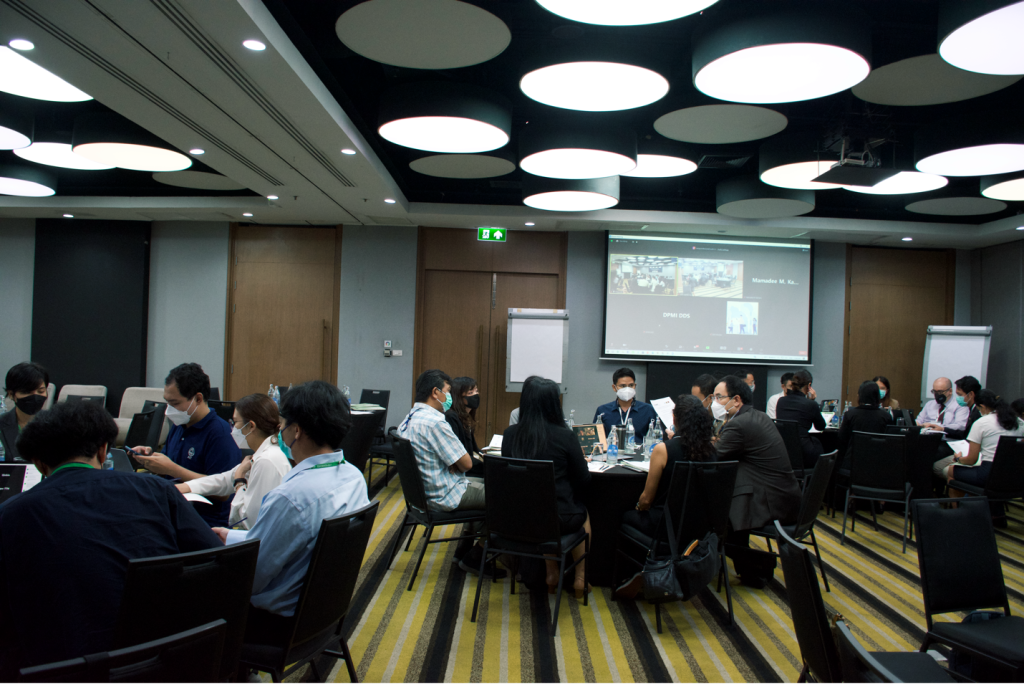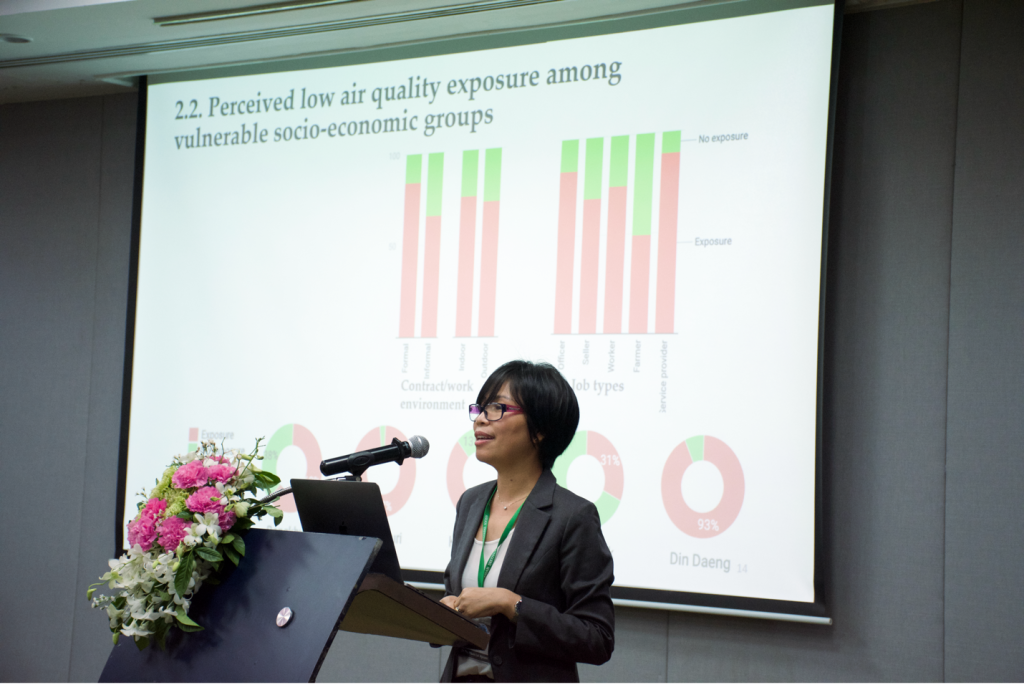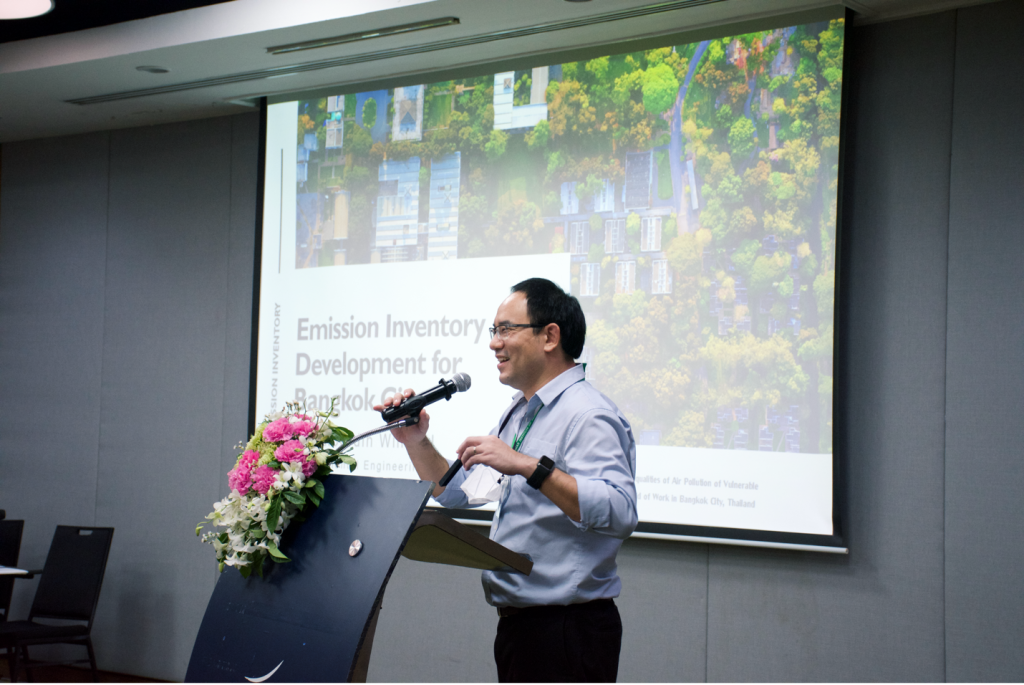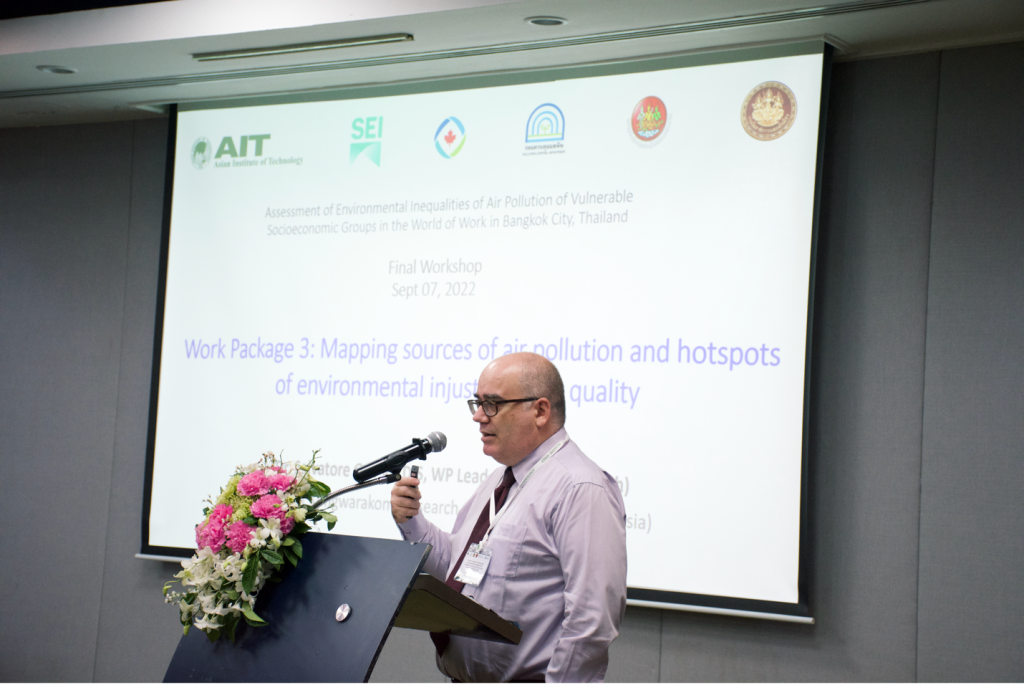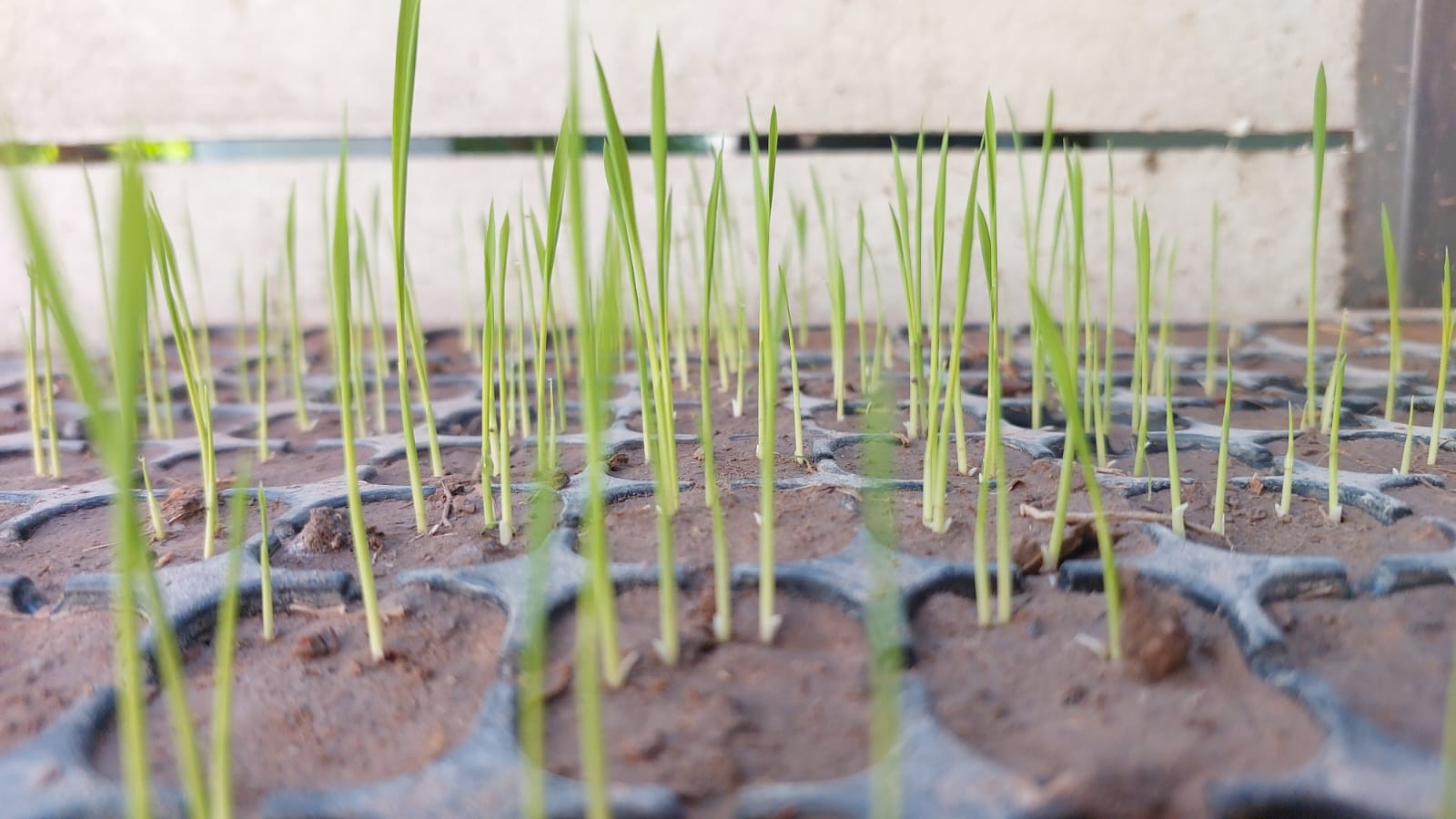By Office of Public Affairs
7 September 2022: A scientific workshop and policy roundtable within the project “Assessment of Environmental Inequalities of Air Pollution of Vulnerable Socioeconomic Groups in the World of Work in Bangkok City, Thailand,” was organized successfully in Bangkok on 7 September 2022. The workshop was led by Dr. Thi Phuoc Lai Nguyen, Assistant Professor, Development Planning Management and Innovation, Asian Institute of Technology (AIT).
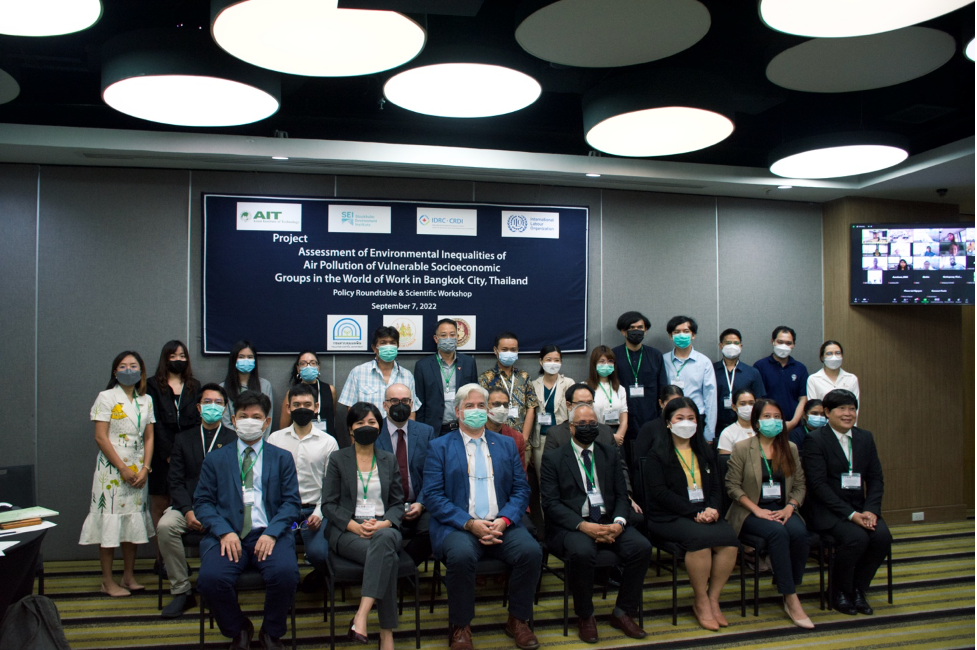
Giving his welcome remarks, Prof. Shobhakar Dhakal, Vice President of Academic Affairs at AIT, stressed that inequalities in environmental hazards make marginalized people more exposed and vulnerable to the pernicious impact of air pollution. He said, “The response to this socio-environmental challenge requires science-policy and public interface and by the frontline actors such as scientists, policymakers, and practitioners who help build this world better, more inclusive, and equal for achieving Sustainable Development Goals.”
Dr. Niall O’Conner, Center Director of the Stockholm Environment Institute, stated that about 30,000 people died from COVID-19 in Thailand and pointed out that the death rate is similar to the number of premature deaths caused due to air pollution each year. He stressed the need to take immediate action, as done during the pandemic. “The problems are not only related to health and environment. It is a substantial social-economic issue that needs to be solved by collaboration with policymakers, academic partners, government departments, civil society, and community”, he added. He further emphasized the importance and urgency of creating a healthy and clean environment for all vulnerable populations by reducing health care costs, promoting livelihood security, and addressing at-risk groups, including the sources of air pollution and its impacts.
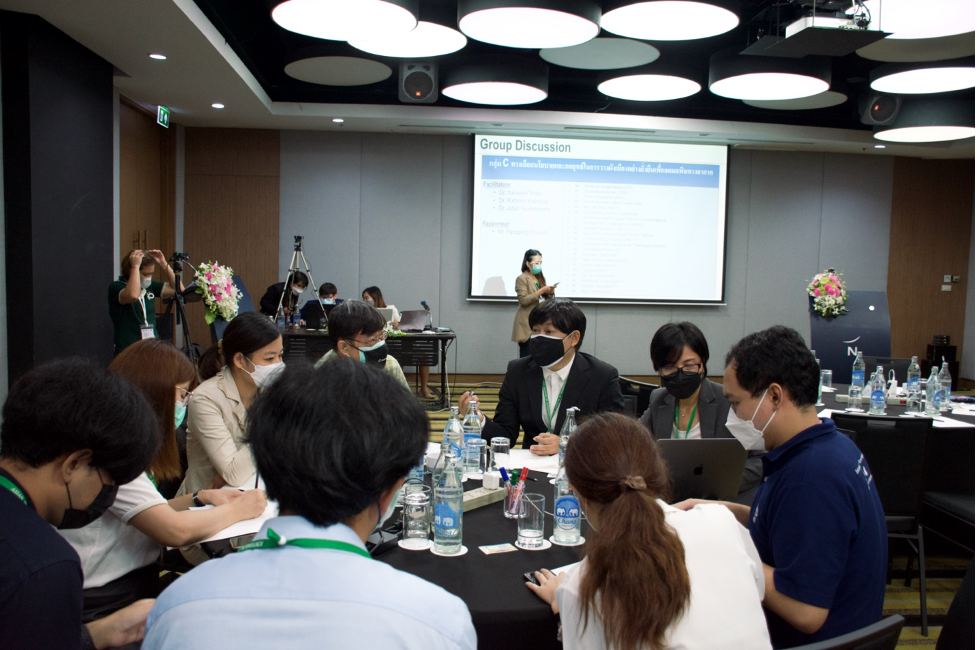
The objective of the scientific workshop was to present and exchange knowledge and understanding among scientists, practitioners, and policymakers on hot spots of air pollution, the relationship between air pollution and climate change, air pollution exposure of different social and economic groups, and the relationship between social-economic deprivation and air pollution exposures, sustainable urban planning and air quality.
The policy roundtable aimed to share the findings and outcomes of the project with stakeholders, seek the stakeholders’ perspectives, identify the potential policy options, and classify opportunities and synergies for collaboration.
Moreover, the event also intended to co-produce knowledge on hotspots of air pollution and its correlation with health conditions and well-being. In addition, how air pollution impacts the vulnerable socioeconomic groups in the world of work in Bangkok City, and suggested policies and measures for air pollution control and health protection.
Through this event, experts shared scientific knowledge and understanding of air pollution impacts on socioeconomic groups and identified policy gaps in air quality control and social protection. Furthermore, they provided suggestions for the areas for policy improvements in air pollution mitigation, social protection, and sustainable urban planning.
Representatives from various ministries, departments, government agencies, NGOs, universities, and research institutions in Thailand attended the event.
The project is funded by the International Development Research Center (IDRC), carried out with Stockholm Environment Institute (SEI), and in partnership with the International Labour Organisation (ILO), the Department of Public Works and Town & Country Planning (DPT), the Pollution Control Department, and the Department of Labour Protection & Welfare. The project is led by Dr. Thi Phuoc Lai Nguyen, Project Team Leader, and Dr. Ekbordin Winjikul and Dr. Salvatore Virdis, Co-team Leaders.
